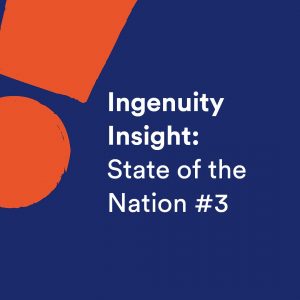Sustainable prosperity in a post-pandemic world
Elizabeth Smith, Ingenuity Producer
At the start of this year, before the world was turned upside down by coronavirus, ‘levelling up’ – the government’s buzzword for bolstering local economics and tackling the economic disparities between London and the South East, and the rest of the UK – was just beginning to seep into our conscience.
As a nation we had 14.5 million people living in poverty, with huge spatial inequalities determining which communities and individuals would be most at-risk of being pulled into poverty or financial vulnerability. Historically embedded differences in income, employment, health, housing and living standards between the north and south, within regions, and on a much more local scale meant that many of our nations’ most financially-vulnerable were already set-up to suffer the most from coronavirus.
The Institute for Public Policy Research has just sounded the alarm on how coronavirus and its effects are accelerating people’s journey into poverty and financial vulnerability. Their forecasting shows that the economic fallout of the pandemic could leave another 1.1 million more people below the pre-Covid poverty line by the end of 2020, including a further 200,000 children. Their analysis highlights that hundreds of thousands of families and their children who may have been ‘just about managing’ before Covid now face being plunged into poverty.
Those at risk of poverty are the most-likely to suffer from the economic shock of mass redundancy. Those still lucky enough to find employment or keep their jobs are often in low-paid, unstable work on insecure contracts. Pairing this with the strain financial vulnerability and coronavirus has on mental health, family dynamics and the other key triggers of poverty, it’s clear to see what a difficult position those living in, or at risk, of poverty are in.
As we look to local, place-based solutions to help our communities ‘level up’, we must place sustainable prosperity, and the tools to achieve it, at the very core of our ideas and innovations. While policy makers are looking at new infrastructures to help achieve a more financially-healthy nation, we must consider the future threats that will impact people in poverty the most – with climate change the most glaringly obvious. As impact entrepreneurs and social innovators, we need to find new, green ways to help establish long-term economic activity in our local areas that can provide greater financial resilience for those who need it.
In our search for solutions that can enable communities to ‘level up’, we need to find people-centred innovations that – rather than flog a new product or service to those already in a financially-precarious position – can create greater social value, tackle the root causes of poverty before people slip through the net, and successfully address the compounding challenges that society’s most vulnerable face.






